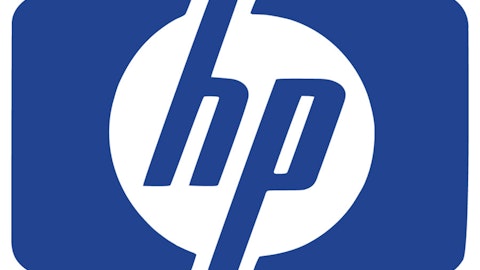Stocks were up today, with the S&P 500 and the narrower, price-weighted Dow Jones Industrial Average gaining 0.2% and 0.3%, respectively. Both indexes closed at five-year highs. It’s not surprising, then, that the VIX , Wall Street’s fear gauge, dropped 2.3% to close at 12.64. (The VIX is calculated from S&P 500 option prices and reflects investor expectations for stock market volatility over the coming 30 days.)

Dow component and industrial conglomerate General Electric Company (NYSE:GE) announced that it is selling to Comcast Corporation (NASDAQ:CMCSA) its remaining 49% stake in their broadcasting joint venture, which includes NBCUniversal. The price tag is $16.7 billion, along with an extra $1.3 billion for NBCU’s floors at 30 Rockefeller Center and the CNBC headquarters in Englewood Cliffs, N.J. GE will record a pre-tax profit of $1 billion on the transaction.
The announcement was made after the market’s close; investors cheered the news in the after-hours session, sending the shares up 3.4% at 6:40 p.m. ET. Is that enthusiasm justified? After all, GE says it doesn’t expect the transaction to materially affect earnings in 2013 or 2014, with foregone earnings from the joint venture compensated by “share repurchases, cost reductions, and earnings growth in its industrial business.”
Speaking of share repurchases, let’s get to them, since they are a key part of the announcement. In tandem with the sale, GE increased its repurchase authority so that it now has a whopping $23 billion remaining, and it will accelerate buybacks to $10 billion this year. Only last December, GE increased its buyback program by $10 billion; CEO Jeff Immelt said he wanted to reduce the share count to below 10 billion, roughly a 5% reduction from the 10.5 billion shares outstanding at the end of the third quarter of 2012. At today’s closing price, $10 billion in buybacks would take GE very close to that goal.
If the transaction has no medium-term effect on earnings, the share repurchase may explain the share-price increase. If that’s the case, it suggests that some investors believe the shares are undervalued: Indeed, if they were fairly valued, buybacks would have no impact on per-share intrinsic value; conversely, repurchasing undervalued shares increases intrinsic value. With shares at just 13.5 times the estimate of the next 12 months’ earnings, I’m inclined to agree with them.
The article GE’s Big Trade — Good for Shareholders? originally appeared on Fool.com and is written by Alex Dumortier, CFA.
Fool contributor Alex Dumortier, CFA, has no position in any stocks mentioned; you can follow him on Twitter, @longrunreturns. The Motley Fool owns shares of General Electric.
Copyright © 1995 – 2013 The Motley Fool, LLC. All rights reserved. The Motley Fool has a disclosure policy.





